If you are preparing and studying for a career in animal care, you have made a great decision. The animal care industry is continually growing, with a diverse range of job options available and career paths that can be both interesting and rewarding.
As students, whether focusing on animal studies or veterinary nursing, it can be challenging to juggle studies, practical training as well as paid work and other responsibilities. If this sounds like you, let’s look at some tips to help you balance the various areas of your life as you prepare for your new career.
Tip 1. Be calendar savvy
When you have a lot to do, it is essential to create an efficient schedule. If you have a job, you will have to be disciplined about fitting in coursework. If you only study when you get around to it or have free time, it will be tempting to procrastinate. Set aside specific periods for study. Mark important events such as exams, coursework deadlines, and workplace meetings on your calendar so you are not caught unawares. Arrange your study sessions based on priorities and complete the most important items first. If you have an exam on Animal Anatomy coming up, for example, you will want to start your study session on that topic.
Be creative about finding times and places to study. If you commute, it is often advantageous to take public transportation so you can use this travelling time to study. You might also sneak in some study time while doing the laundry, waiting for food to cook in the oven, or any extra minutes you can find during the day.
Tip 2. Reduce time wasting activities
Everyone has areas where they waste time. For you, it might be watching TV, playing computer games or browsing social media for hours. This is not to say you have to live a spartan existence where you do nothing but work and study. You need to give yourself some “unproductive” time that’s just for fun or relaxation. Sometimes, however, such activities can become addictive and interfere with your responsibilities. One way to handle this is to schedule your downtime as well as your productive activities. Time management apps can help you track your activities and help you make the most of your time.

Tip 3. Work in the industry
Working in the animal care industry is ideal if you are pursuing studies in this field. This way, your job and studies perfectly complement one another. You will be able to apply the knowledge learned in courses to your job as well as obtain the required practical training hours, provided your workplace has been approved.
Whether you are working in the animal care industry or not, let your employer know that you are studying. You may be able to arrange flexible hours at work to make it easier to find study time.
Tip 4. Keep multitasking to a minimum
When you are busy, it is tempting to multitask. You might feel that you are being efficient when you engage in several activities at once. However, the latest research indicates that multitasking is not a sound practice. It actually reduces your efficiency and, in some cases, can even be dangerous. If you are trying to read course material while watching TV or talking on the phone, for example, you will be distracted and not absorb as much information as you would if you were only studying.
Be careful about trying to combine work with study time. If you have actual downtime at work, this may be acceptable at certain jobs. However, do not let studying distract you from essential duties at work. The other issue here is that you cannot give your studies complete attention if you are dealing with customers or work-related tasks. When you multitask, you end up giving less than your best effort at each task. You are better off setting up dedicated times for each activity.
Tip 5. Take care of yourself
Do not let your busy schedule harm your health or well-being. Having a balanced life means eating well, getting enough sleep, and having some time to relax. It can be hard to fit all this in when you are working and studying. However, if you try to do too much, you will end up burning out.
- Make sure you get sufficient rest. Lack of sleep is not only detrimental to your health, but it will also reduce your effectiveness as a student and employee.
- Take breaks. Just as most jobs provide employees with regular breaks, you should also take breaks from study. Even short breaks where you get up, stretch and maybe take a short walk will help keep you refreshed.
- Exercise regularly. Exercise helps you stay healthy and keeps your energy levels high.
- Eat nutritious foods and do not rely on junk foods, caffeine or energy drinks to stay alert. These habits backfire and contribute to burnout in the long run.
- Plan leisure and downtime. Give yourself a little time to kick back and relax, socialise or just do nothing at all.
Tip 6. Practise, Practise, Practise
Unlike many careers, animal care is all about working with living animals. While there is plenty of knowledge to absorb, it is also important to get as much practical experience as possible in the field to build your confidence and to get exposure to as many species as you can.
Even if your job has nothing to do with animals, we recommend trying to get as much practise in handling animals as possible. If time permits, consider volunteering at an animal shelter, offer to pet sit or walk your friends’ dogs or even consider house sitting for other people with animals. There are many online resources where you can offer your services or find people in need of help.
By doing this, when it comes to submitting assessments and having your practical skills signed off, you will be more comfortable and confident in your own abilities when working with animals.
Tip 7. Choose a flexible online course for your animal care or veterinary nursing related course
One of the benefits of online learning is that it allows you to maintain a flexible schedule. Attending traditional classes, in addition to working, makes it harder to plan a schedule. With online courses, however, you can study at home or in any public space with internet access. It is also good to study with an organisation that offers a variety of courses as well as great support to their students.
It is not always easy to balance work, study and other areas of your life.
The above tips can help you create a more productive schedule while still finding time for yourself. It helps to keep your goals in mind. Remember that once you complete your studies, you will be one step closer to starting your exciting career in animal care. Keeping this in mind will help motivate you when things get a bit hectic and challenging.
If you are looking to start a career in animal care we recommend choosing a nationally recognised Certificates in Veterinary Nursing, Animal Care (Animal Studies) or Animal Behaviour and Training,
You can learn more about getting started in the animal care industry or about our qualifications below.
About AVT
We have been training animal care, animal behaviour and training, equine care and veterinary nursing students for over 25 years in Australia. Students who undertake AVT courses range from high school-aged students just starting their pre-vocational journey right through to mature-aged students seeking an alternative career path. Graduates are highly respected and sought after by industry professionals, businesses and organisations. If you want the background knowledge and skills to help you secure your career in the animal care industry, check out our qualifications here or gain new skills by studying one of our short courses.
Start your career working with animals...
Choose a course
Follow your passion and get a dream job!
About Our Courses
Choose from our range of courses
Get started
ACM20121 Certificate II in Animal Care (Online)
Studying Online









